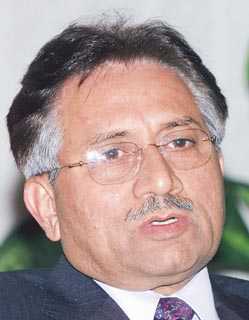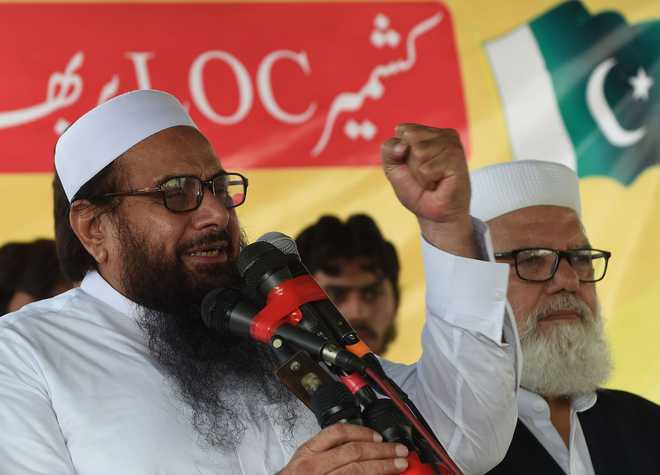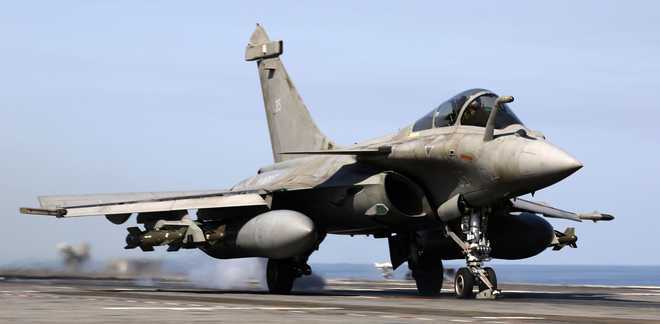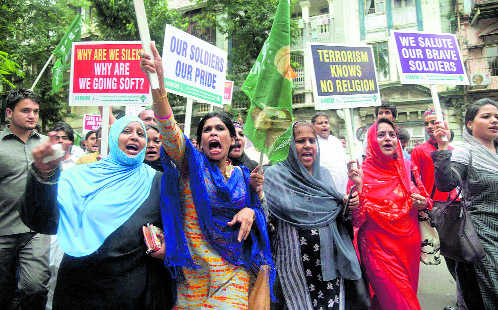FACING THE HEAT Wants fresh attempts to be made to conclude the Pathankot probe and restart the Mumbai attack-related trials
NEW DELHI: Prime Minister Nawaz Sharif has directed authorities to conclude the probe into the Pathankot attack and resume the stalled Mumbai attacks case after the civilian leadership warned the military that Pakistan faces growing international isolation,according to a media report on Thursday.
AP FILEPakistan PM Sharif at a leaders’ summit at the UN.
The civilian government delivered a “blunt, orchestrated and unprecedented warning” to the military leadership and sought consensus on several key actions, including action against banned militant groups, the Dawn newspaper quoted unnamed individuals, who were involved in the meetings between the civil and military leadership, as saying
Sharif has “directed that fresh attempts be made to conclude the Pathankot investigation and restart the stalled Mumbai attacks-related trials”, the report said.
Inter-Services Intelligence chief Lt Gen Rizwan Akhtar and national security advisor Nasser Janjua will travel to the four provinces with a message for provincial apex committees and ISI sector commanders – “military-led intelligence agencies are not to interfere if law enforcement acts against militant groups that are banned or until now considered off-limits for civilian action”.
Akhtar’s tour began with a visit to Lahore, the report said, adding that the decisions were made after an “extraordinary verbal confrontation between Punjab chief minister Shahbaz Sharif and the ISI DG”. The decisions apparently indicated a “high-stakes new approach by the PML-N government”, the report said.
The move comes against the backdrop of a spike in tensions between Pakistan and India. India last week carried out surgical strikes against terrorists across the Line of Control . ‘TAKE VISIBLE ACTION’
The Dawn reported that the decisions followed an undisclosed meeting between the civilian and military leadership on Monday when Sharif had also chaired a meeting of Pakistan’s political parties to forge a united front on the issue of tackling the tensions with India.
The report said foreign secretary Aizaz Chaudhry, while making a presentation in the Prime Minister’s Office to a small group of civil and military officials on Tuesday, said “Pakistan faces diplomatic isolation” and the “government’s talking points have been met with indifference in major world capitals”.
Referring to India, Chaudhry said the “completion of the Pathankot investigation and some visible action against Jaish-e-Mohammed were the principal demands”, the report said.
Pakistan army beefs up positions along LoC: Intel
NEW DELHI: Intelligence reports indicate that the Pakistan Army has beefed up its positions all along the Line of Control (LoC). More troops have been inducted in the area north of Sialkot and heavy artillery guns have been moved into the theatre this week in what is an apparent reaction to India’s cross-LoC strike of September 29.
The intelligence assessment, top sources have revealed, is that Pakistan’s additional deployment is to prevent any cross-LoC strike by the Indian Army in the near future.
Pakistan’s aggressive LoC posture has been reported to the highest levels of Modi government, and counter-measures have been initiated.
“The Army is also strengthening its defences in cities like Muzaffarabad and other important towns in PoK as well as major cities like Lahore,” said a senior official.
Meanwhile, two global positioning system (GPS) sets, two wireless sets with code sheets of the kind used by Muridkebased Lashkar-e-Taiba (LeT) terror group has been recovered from bodies of three terrorists who were killed when they tried to attack a Rashtriya Rifles camp in Handwara in Kashmir.
Top sources said that Pakistan violated the ceasefire at five places on the LoC using area weapons and mortars to target Indian positions. The aggressive Pakistani action was noticed after deployment of more troops and guns into area under the control of Rawalpindi-based X Corps and Gilgit based Force Commander Northern Areas.
Although both Pakistan Prime Minister Nawaz Sharif and his envoy to India Abdul Basit have made peace overtures to India, intelligence officials say militants already in the Valley will make the coming winter “hot” for the security forces.
They, however, dismiss reports of 100 militants ready to infiltrate across the LoC from Pakistan as military deployment on both sides has been beefed up.
India hits out at UNSC’s handling of terror issues
It is a body that ponders over six months on whether to sanction leaders of organisations it has itself designated as terrorists. SYED AKBARUDDIN, India’s permanent representative to UN
NEW DELHI: India has hit out at the working of the United Nations Security Council for what it perceives as an unresponsive manner in which the world body addresses the issue of terrorism.
New Delhi cited inordinate delay in sanctioning terrorists, the secrecy of the procedures and more than 20 years of dilly-dallying in amending norms to extradite terrorists to countries where they are wanted by the law.
“It is near impossible to argue the case of relevance of the UN on the issue of terrorism, where even adoption of an international norm to ‘prosecute or extradite’ terrorists evades us despite 20 years of talk,” India’s permanent representative to the UN Syed Akbaruddin said in his statement on the working of the organisation.
“At best, it is now a body that can be described as an interesting and random mix of ad-hocism, scrambling, and political paralysis,” he said.
What he dealt at length reflected India’s frustration with not being able to bring Pakistanbased individuals such as Jaishe-Mohammed (JeM) chief Mazood Azhar under the UN sanctions committee.
“It is a body that ponders over six months on whether to sanction leaders of organisations it has itself designated as terrorists. Then, unable to decide, it gives itself three more months to further consider the issue,” he said.
While the JeM had been designated as a terrorist organisation, Indian efforts to list Azhar had run into Chinese opposition.
On March 31 this year, China – a veto-wielding permanent member of the Security Council – had blocked India’s move to put a ban on Azhar under the al Qaeda Sanctions Committee of the Council. China was the sole member in the 15-nation UNSC to put a hold on India’s application with all other 14 members of the Council supporting New Delhi’s bid to place Azhar on the 1267 sanctions list that would subject him to an assets freeze and travel ban.
The Chinese technical hold had lapsed on Monday, and had China not raised further objection, the resolution designating Azhar as a terrorist would have been passed automatically. However, Beijing on Saturday announced the extension of its “technical hold”. “The extended technical hold on it will allow more time for the Committee to deliberate on the matter and for relevant parties to have further consultations,” foreign ministry spokesman Geng Shuang said in Beijing.
Akbaruddin said that as many as 31 entities within the United Nations deal with some aspect of countering terrorism.
“We have learnt of the adage that too many cooks spoil the broth. This is clearly the case as coherence and coordination is missing,” he said.
SAINIK SCHOOL SCHOOL
Tribune News service
Chandigarh, October 6
The All-India Sainik School Entrance Examination has been rescheduled for January 15, 2017, instead of January 8, 2017, due to administrative reasons, stated a press note.





















































































































